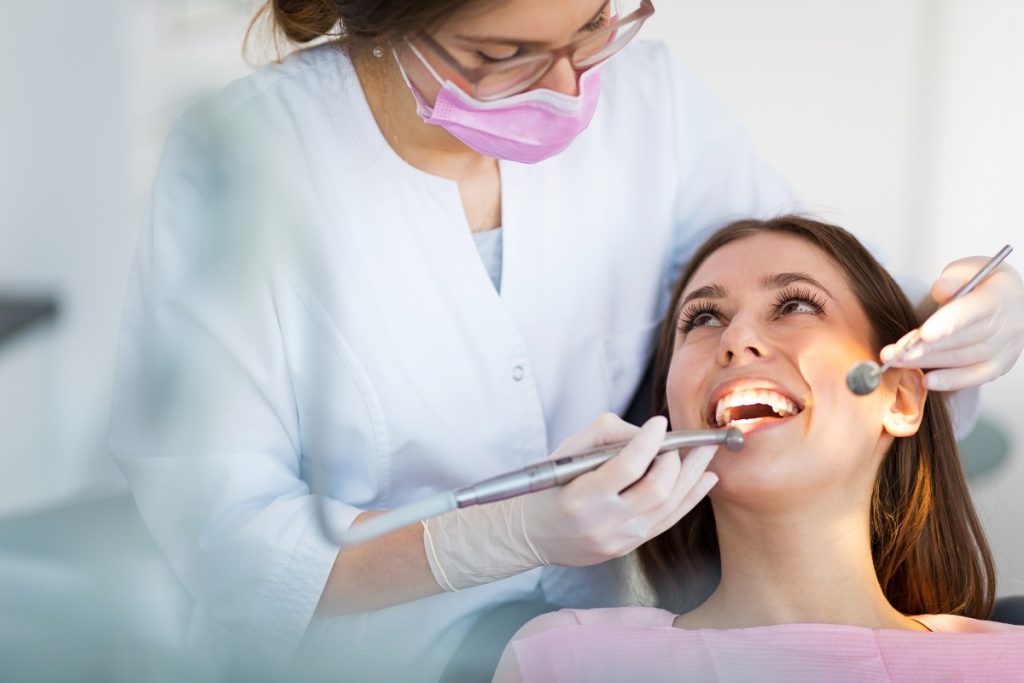- Dental hygiene significantly affects overall health, and proper practices can prevent tooth decay, gum diseases, and bad breath.
- Regular dental clinic visits allow early detection of oral health issues, enabling prompt, less invasive treatments.
- Both corrective and preventative dental procedures are essential for addressing various oral health problems and maintaining overall health.
- Good oral hygiene, regular dental visits, and necessary dental procedures are crucial for long-term oral health and well-being.
Dental health is a significant factor in an individual’s overall health. Studies have shown poor oral hygiene can lead to various health issues, including heart disease and diabetes. According to the American Dental Association, individuals with severe gum disease are 40% more likely to have a chronic condition on top of it. Moreover, the Centers for Disease Control and Prevention (CDC) reports that nearly half (46%) of adults aged 30 years or older show signs of gum disease. This underscores the importance of maintaining good dental hygiene for oral health and well-being.
However, most people struggle with maintaining good dental hygiene, and this is due to several factors. For starters, there is a lack of proper education on how to care for one’s teeth properly. Here are a few simple tips to help ensure good oral health:
Mastering Dental Hygiene

Adhering to proper dental hygiene habits is crucial in maintaining not just oral health but also overall health. Regular and correct oral hygiene practices can prevent tooth decay, gum diseases, and bad breath. Moreover, it can help maintain your teeth as you age and reduce the risk of serious diseases, as some medical conditions directly link to oral health.
Correcting Brushing Practices
Proper brushing is the first step toward maintaining good oral hygiene. Use a soft-bristle toothbrush to ensure proper care and partner it with a fluoride toothpaste. Brush gently at a 45-degree angle to your gums, using back-and-forth strokes on your teeth’ outer, inner, and chewing surfaces. Don’t forget to brush your tongue to remove bacteria and freshen your breath.
Flossing Properly
Flossing helps remove plaque and food particles between the teeth and under the gum line that the toothbrush can’t reach. If not removed, plaque can harden into tartar, leading to gum disease. Floss at least once a day, using about 18 inches of floss. Wrap it around your middle fingers, leaving about an inch to work with. Holding the floss taut, gently slide it between your teeth.
Avoiding Overbrushing
Overbrushing might not be as harmless as it sounds. Brushing with too much force can damage the enamel and cause gum recession. Use gentle strokes and only light pressure to avoid damaging your teeth when brushing. Use your other hand to hold the bristles in place when applying proper pressure.
Using Mouthwash
Using mouthwash helps to remove the last traces of food and bacteria in your mouth, giving your teeth an additional layer of protection. Look for an alcohol-free mouthwash that contains fluoride for added protection against cavities and gum disease. For best results, use it twice daily – once after brushing and flossing and again before bedtime.
Visiting the Dental Clinic Regularly

Regular visits to the dental clinic are a critical component of maintaining good oral health. These appointments allow a dental professional to comprehensively examine your oral health, identifying any early signs of problems such as cavities, gum disease, or oral cancer. This early detection is vital as it allows for prompt treatment, often when the issue is manageable and less invasive procedures can be applied.
In addition, professional teeth cleaning during these visits helps remove tartar build-up and hard-to-reach plaque, preventing potential oral diseases. Furthermore, these visits are an excellent opportunity to get personalized advice on maintaining proper dental hygiene based on your specific needs. Thus, visiting your dentist at least twice a year is recommended for regular check-ups and cleanings to ensure optimal dental health.
Pursuing Dental Procedures
When dental health issues have already developed, dental procedures become an essential part of comprehensive oral care. These procedures address various dental problems, restore oral health, and improve overall quality of life.
One common procedure is fillings, which are required when tooth decay has led to cavities. Fillings prevent further decay by closing off spaces where bacteria can enter. In some severe cases, root canal treatment may be necessary to remove damaged or diseased tooth pulp and save the tooth.
Dental crowns are used to entirely cover a damaged tooth, strengthening it and improving its appearance, shape, or alignment.
For those with missing teeth, dental implants offer a permanent solution. They serve as sturdy bases for replacement teeth by being surgically placed into the jawbone, effectively replacing the roots of the lost teeth. Dental bridges may also fill the gap created by one or more missing teeth.
Teeth replacement services play a critical role in restoring function and aesthetics. They enable individuals to regain their smile and confidence, improving their social interactions and self-esteem. Furthermore, teeth replacement helps maintain the shape of the face, prevents remaining teeth from drifting out of proper position, and ensures adequate chewing and speaking ability.
Dental procedures are not only corrective but also preventative. They are integral in maintaining good oral health, preventing the progression of oral diseases, and contributing to overall health and well-being. Always consult your dental professional to understand the best procedures for your dental health needs.
Final Thoughts
Good oral hygiene is integral for good overall health. While it can be challenging to maintain proper dental hygiene, understanding the basics of brushing, flossing, and visiting your dentist regularly will ensure you have healthy teeth and gums throughout your life. Additionally, pursuing necessary dental procedures can help prevent the progression of oral diseases or provide corrective solutions when issues have already developed. Ultimately, proper oral hygiene is essential for good overall health and well-being.


